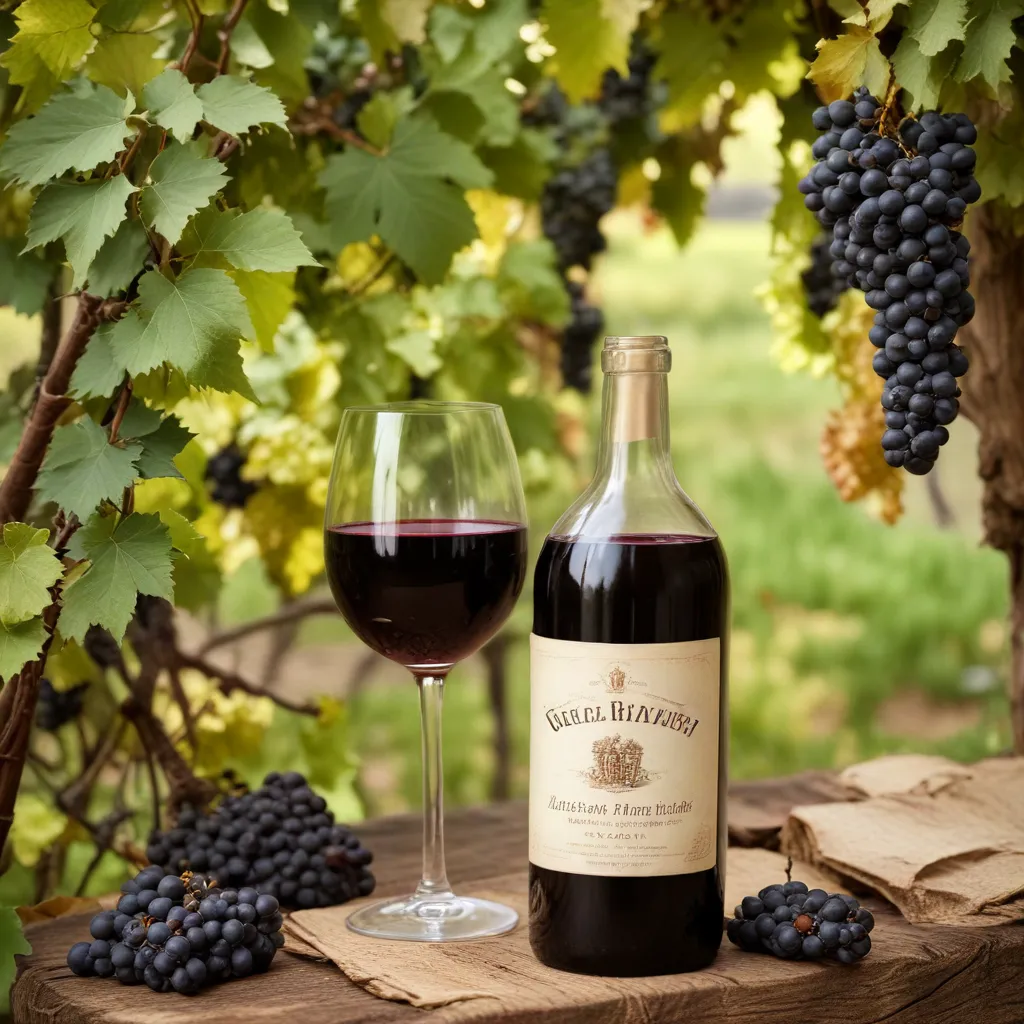
Vintage Vitality: Exploring the Longevity-Boosting Effects of Wine Polyphenols
The secret to longevity may lie in a glass of wine. Recent research reveals the remarkable anti-aging properties of wine polyphenols – diverse plant compounds that impart vibrant color, distinctive flavor, and remarkable health benefits. As experts on all things wine and wellness at the Wine Garden Inn, we’re excited to delve into the science behind this liquid fountain of youth.
The Composition of Wine Polyphenols
Wine is brimming with a vast array of polyphenols – over 8,000 unique compounds found in the grape skins, seeds, and stems. These natural phytochemicals are synthesized by the vine as a defense mechanism against environmental stressors like pests, pathogens, and UV radiation. For us wine lovers, this means each sip delivers a potent dose of antioxidant and anti-inflammatory power.
The two major classes of wine polyphenols are flavonoids (including anthocyanins, flavanols, and flavonols) and non-flavonoids (such as phenolic acids, stilbenes, and lignans). Flavonoids like resveratrol, quercetin, and catechins are especially abundant in red wines, while white wines tend to be richer in non-flavonoid compounds like hydroxybenzoic acids and hydroxycinnamic acids.
The Bioavailability and Absorption of Wine Polyphenols
Though wine is teeming with beneficial polyphenols, their bioavailability and absorption in the human body is a complex process. Only about 5-10% of these compounds are directly absorbed in the small intestine – the rest travel to the large intestine where they undergo extensive metabolism by our gut microbiome.
The specific polyphenol compounds, their food matrix, individual gut microbiome composition, and other dietary factors all influence how efficiently these phytochemicals are assimilated and utilized. Nonetheless, even the relatively low systemic availability of wine polyphenols has been shown to confer remarkable anti-aging effects.
The Mechanisms of Action of Wine Polyphenols
Wine polyphenols exhibit a diverse array of beneficial biological activities, many of which are key to slowing the aging process. Their powerful antioxidant properties neutralize free radicals, preventing oxidative damage to cells, lipids, and DNA. Polyphenols also demonstrate anti-inflammatory effects, modulating inflammatory signaling pathways implicated in age-related diseases.
At the cellular level, wine polyphenols have been shown to activate longevity pathways, stimulate mitochondrial biogenesis, and enhance autophagy (the body’s system for clearing out damaged cellular components). By optimizing these fundamental processes, polyphenols help maintain cellular and organismal health as we age.
The Longevity-Boosting Effects of Wine Polyphenols
Cardiovascular Health Benefits
Extensive research has documented the cardioprotective effects of wine polyphenols. These compounds help improve endothelial function, reduce blood pressure, and lower the risk of atherosclerosis and other cardiovascular diseases. By mitigating oxidative stress and inflammation, polyphenols support healthy blood flow and heart function even in our later years.
Anti-Inflammatory Properties
Chronic, low-grade inflammation is a hallmark of aging, contributing to the development of myriad age-related conditions. Wine polyphenols demonstrate potent anti-inflammatory activities, targeting key signaling pathways and transcription factors involved in the inflammatory response. This helps dampen age-associated inflammation and its detrimental effects on cells and tissues.
Neuroprotective Potential
The brain is particularly vulnerable to the ravages of oxidative stress and inflammation, which can culminate in neurodegenerative diseases like Alzheimer’s and Parkinson’s. Excitingly, wine polyphenols have been shown to safeguard brain health by scavenging free radicals, modulating neuroinflammation, and promoting the clearance of toxic protein aggregates. This may explain the reduced risk of cognitive decline observed in regular moderate wine drinkers.
The Antioxidant Power of Wine Polyphenols
Oxidative Stress Reduction
At the heart of the anti-aging magic of wine polyphenols is their ability to combat oxidative stress. These plant compounds are remarkably effective at neutralizing harmful reactive oxygen species, preventing them from damaging cellular components and triggering inflammatory cascades. By restoring redox balance, polyphenols help maintain optimal cellular function and resilience.
Cellular Rejuvenation
Polyphenols have been shown to activate the body’s endogenous antioxidant defenses, upregulating the expression of enzymes like superoxide dismutase and catalase. This boosts the cell’s own capacity to quench free radicals and repair oxidative damage. Polyphenols also stimulate the process of autophagy, the cellular “recycling” system that clears out dysfunctional organelles and misfolded proteins.
DNA Damage Prevention
Oxidative stress is a major driver of genomic instability, leading to the accumulation of DNA mutations that contribute to aging and cancer. Wine polyphenols safeguard DNA by scavenging free radicals, chelating pro-oxidant metal ions, and enhancing DNA repair mechanisms. This helps preserve the integrity of our genetic material as we grow older.
Exploring the Variety of Wine Polyphenols
Red Wine Polyphenols
The deep, vibrant hues of red wines stem from their high anthocyanin content – a class of flavonoid pigments with remarkable antioxidant capabilities. Compounds like resveratrol, quercetin, and the catechins in red wine have been extensively studied for their longevity-promoting effects. Sipping a glass of Cabernet or Malbec may just be the key to graceful aging.
White Wine Polyphenols
While not as widely publicized as their red counterparts, the polyphenols in white wines offer their own unique health benefits. These include hydroxycinnamic acids like caffeic and p-coumaric acid, as well as flavonols like quercetin and kaempferol. White wine polyphenols exhibit anti-inflammatory, neuroprotective, and cardioprotective activities, making them a worthy addition to the wellness regimen.
Grape Seed Polyphenols
The often-discarded grape seeds contain a treasure trove of potent polyphenols. Proanthocyanidins, a class of flavanols, are the primary polyphenols in grape seeds and skins. These compounds demonstrate exceptional free radical-scavenging abilities, up to 50 times more potent than vitamins C and E. Grape seed extracts are a popular supplement for their wide-ranging anti-aging benefits.
Whether you prefer a bold Cabernet, a crisp Chardonnay, or a glass of refreshing rosé, the wine in your glass is brimming with longevity-boosting polyphenols. As part of an overall healthy lifestyle, moderate wine consumption may be the secret to living your best, most vibrant life. Explore the wellness wonders of wine at the Wine Garden Inn – where we celebrate the art of graceful aging, one sip at a time.
